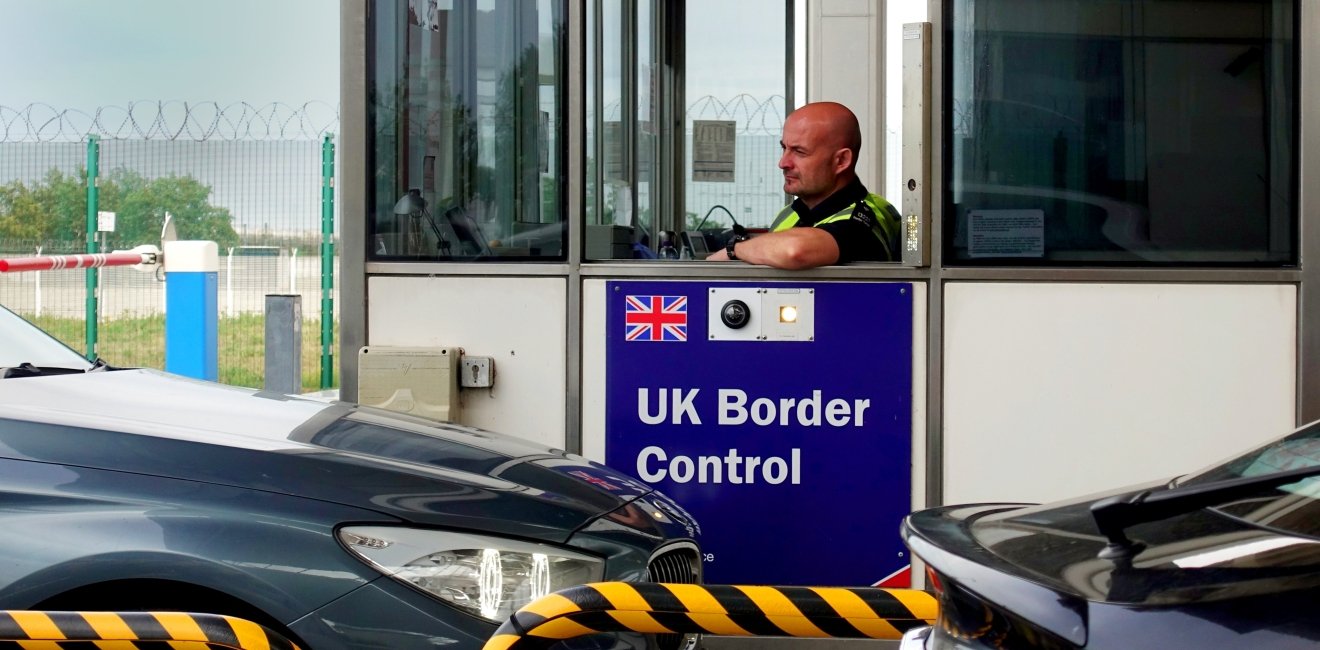Clausewitz wrote that ‘fog’ and ‘friction’ are inherent elements of war. There is no war between the United Kingdom (UK) and the European Union (EU), but there is plenty of fog (uncertainty) and friction (generational change). In Clausewitz’s work, friction was the result of the inability to use the geographical context or the effects of a failed military decision. These difficulties accumulate and produce friction that no man can imagine. If fog (uncertainty) and friction (generational change) is the diagnosis of the UK’s ills a month after leaving the EU with a meagre thin trade agreement, so be it. New systems can be created to overcome the friction that will provide answers to both the political strategic problem. However, if the friction endures and makes new systems unworkable, then friction can become dangerous. Resolution lies in the swift creation of new systems, or as Clausewitz recommended a ‘system of systems.’
One month after departing with nothing more than a loincloth of a free-trade agreement what are the nature of the frictions between the UK and EU today? Profound changes in the way of doing business, manufacturing products, accessing services and undertaking travel were anticipated and are now required. UK fishermen prepared for the introduction of new catch certificates, health checks and customs declarations, but found that the electronic systems became overloaded and slow. What previously took 45 minutes to process the export of lobsters, craw fish, oysters and mussels now takes 5 days. Meantime, the crustaceans either went bad or had to be frozen on board fishing boats, reducing the attractiveness of UK shellfish to European consumers. Angered by the loss of the EU market, over 20 refrigerated lorries descended on Whitehall to protest. Friction grew even further when the lorry drivers were fined £200 for ‘unnecessary journeys’ at a time of heightened COVID19 restrictions. Citizens contributed generously to pay the fines, but the problem has not gone away. Red tape requiring health checks, catch certificates and customs declarations require systems that are efficient and fast if fishing communities from Scotland to Cornwall are to prosper. In January 2021, the EU formally banned the import of UK shellfish creating even greater problems. Only a loophole allowing exports to Denmark has kept a few fishermen afloat. What began as friction has assumed dangerous consequences for the UK fishing industry.
Delivery of food and other necessary merchandise across the Irish Sea to Northern Ireland has slowed down with road haulers complaining of lengthy forms to complete and regulations to meet. Whitehall announced in September 2020 that it would establish 10 new IT systems to facilitate completion of the customs forms and health checks, but the IT systems have not worked as planned and company staff need more training in their use. As a result, several companies have decided not to supply grocery stores in Northern Ireland. Luckily, the Republic of Ireland can provide dairy and fresh vegetables with no regulatory bumps in the passage of goods and services between the republic and Northern Ireland. This lesson has been hard on the 8 members of the Democratic Unionist Party who stood tall as firm Brexiteers, but now see how the rupture with the EU impacts their constituents negatively. Sovereignty seems hollow when pork sausages and cream cakes are rare on the shop shelf.
Finally, significant delays in providing intermediary goods through integrated supply chains between the UK and the EU pose serious friction; a problem compounded by the pandemic. The EU accounts for 45 percent of all goods imported into the UK. Essential to the smooth passage of trade in intermediary goods is a functioning cross border trading system. Last July, the government announced a Border Operational Model to instruct UK companies on how the border with the EU would work after December 31. The model was drafted without knowing the terms of the trade agreement, or if such agreement would even be reached. Consequently, it was updated on December 31, as well as January 5 and 6, but shortages of customs officials and difficulties with the new IT systems continue to plague the model. In anticipation of Brexit, a McKinsey Report of 2019 recommended upgrading supply chain strategies and making them more resilient. This included developing alternative sources for necessary supplies. In Europe, this meant looking for reliable networks beyond the UK. Some UK manufacturers interpreted this message as advice to ‘consider setting up shop in the EU’!
Time will tell whether these problems are anything more than Clausewitzean frictions to be resolved as UK producers become accustomed to the new custom’s regulations. We should trust that IT systems will improve and that personnel will receive the necessary training to complete the regulations to both export and import products. Predictable operations are necessary to keep the UK economy ticking and citizens employed. However, if frictions persist, reflecting underlying strategic problems then we should watch the flashing red light of danger. Clausewitz identified the effects of a failed military decision as an unworkable system. Whether this applies to the British government’s decision to leave the EU depends upon whether current frictions can be resolved. If the UK economy fails to grow in the next few years, then the strategic decision to prefer UK sovereignty over economic livelihoods must be reviewed before these frictions become dangerous.
Author


Global Europe Program
The Global Europe Program is focused on Europe’s capabilities, and how it engages on critical global issues. We investigate European approaches to critical global issues. We examine Europe’s relations with Russia and Eurasia, China and the Indo-Pacific, the Middle East and Africa. Our initiatives include “Ukraine in Europe”—an examination of what it will take to make Ukraine’s European future a reality. But we also examine the role of NATO, the European Union and the OSCE, Europe’s energy security, transatlantic trade disputes, and challenges to democracy. The Global Europe Program’s staff, scholars-in-residence, and Global Fellows participate in seminars, policy study groups, and international conferences to provide analytical recommendations to policy makers and the media. Read more

Explore More
Browse Insights & Analysis
360° View of How Southeast Asia Can Attract More FDI in Chips and AI



